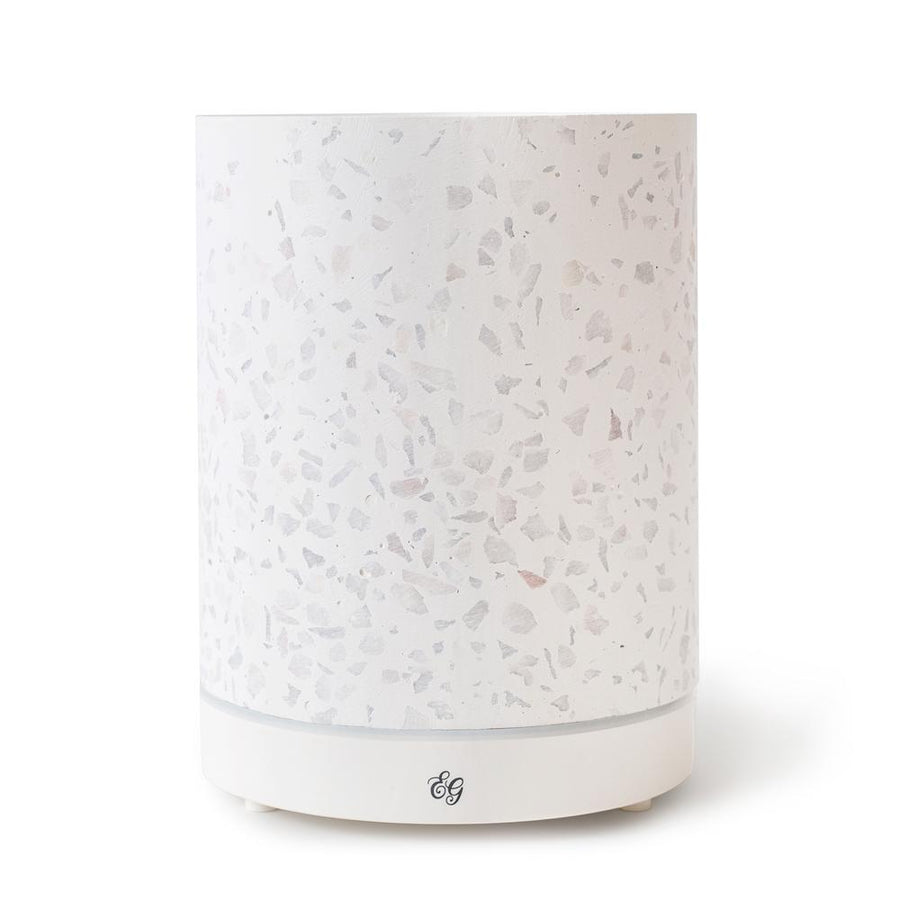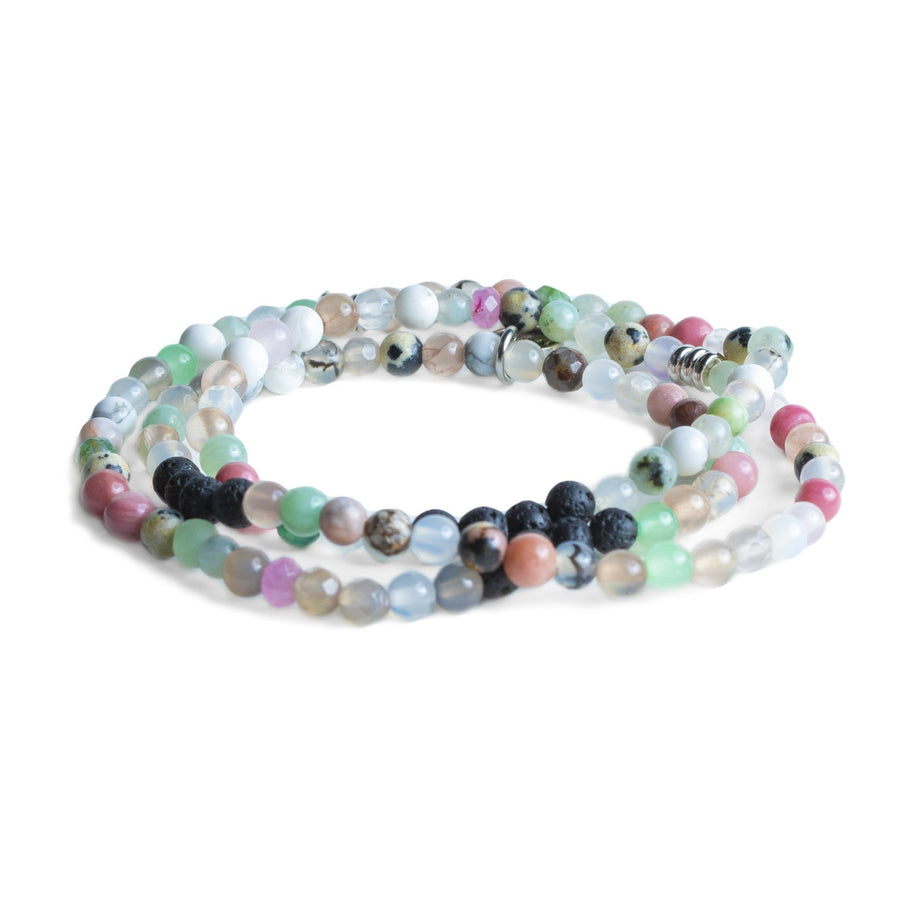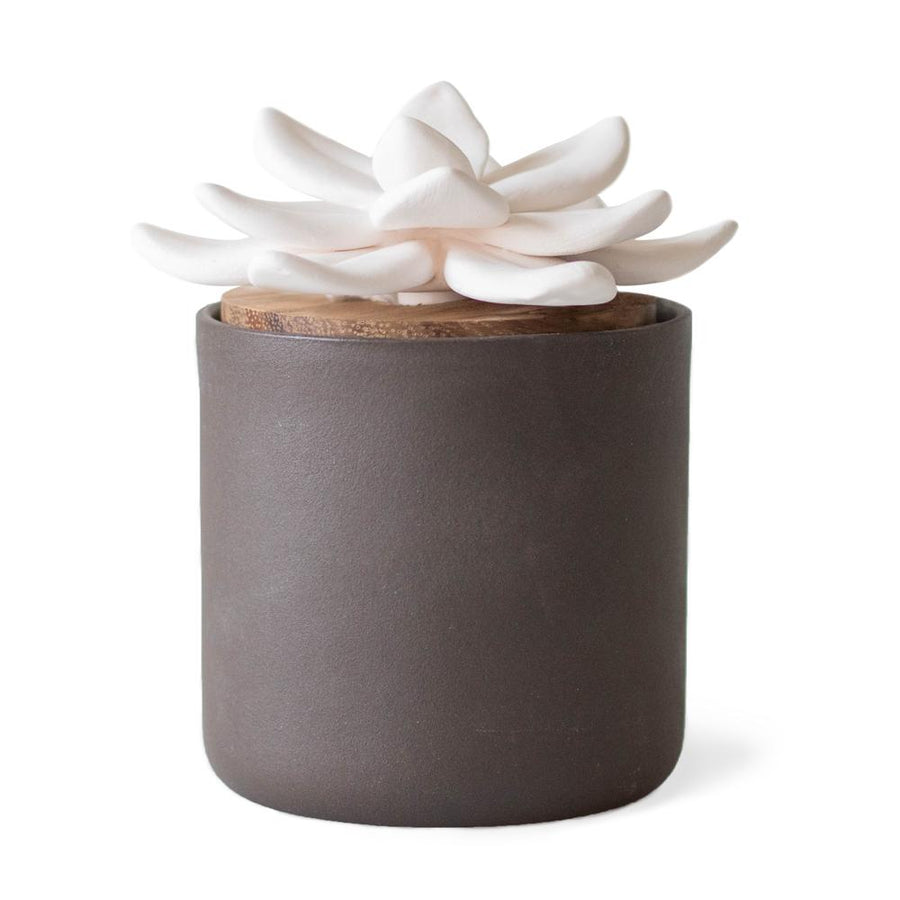Is It Safe To Diffuse Essential Oils In Public

Essential oils are nature’s perfumery. Each carries its own beautiful aroma and unique characteristics, and the best part is that they’re 100% pure and natural. So it’s no wonder why so many people want to share essential oils with others to enjoy. But what you may not know is that diffusing pure essential oils in public comes with quite a few precautions and a couple controversies as well.
How could public diffusion be such a divisive topic in the aromatherapy industry? In this short guide, we’ll look at both sides of the debate and give you our perspective on whether or not you should turn an ultrasonic diffuser on in public. Read on to get the scoop.
Is It Safe To Diffuse Essential Oils In Public?
“Which essential oils should I diffuse at my open house, office, classroom, waiting room, boutique, etc.?” We’ve heard it all before, and the answer is never as simple as people expect it to be because there are quite a few essential oil safety precautions to keep in mind. Here are some things to consider.
Health Conditions
One major consideration to keep in mind before diffusing in public is that essential oils affect everyone differently and for a variety of reasons. Here are a few examples of essential oils which are recommended to be avoided or used with caution around certain individuals:
- Sage and Yarrow essential oil may trigger seizures in epileptic individuals
- Fennel and Star Anise are contraindicated for individuals with estrogen-dependent cancers
- Eucalyptus oil and Saro should be used with caution by individuals with asthma
- Cinnamon Bark and Wintergreen should be avoided by individuals who are pregnant and nursing
These are just a few examples of essential oils which should be used cautiously with certain health conditions, but the list goes on. It’s also worth noting that individuals may have an allergic reaction to certain essential oils.
The Individual
Certain individuals are innately more sensitive to essential oils than others, as previously mentioned. This is also true of elderly adults and young children.
In the case of young children and infants, their bodies are underdeveloped and don’t metabolize essential oils as well as adults or even older children. It’s for this reason that we advise against using essential oils on children until they reach 2 years of age.
On the other hand, essential oils can be greatly beneficial to elderly adults with a variety of everyday issues. But as we age, we’re more likely to have health issues, take medications and have surgeries. On top of that, our skin becomes thinner. All of these factors come with their own precautions when using essential oils.
Drug Interactions
You may be familiar with the fact that certain medications don’t mix. The same is true of certain essential oils and medications. Essential oils are powerful substances and have the ability to affect drug metabolism, rendering drugs less effective and producing undesirable side effects. It is, therefore, best to avoid using essential oils that can affect one’s medications.
Preference
One final consideration is a person’s aroma preference. Aroma is subjective, and therefore, what one individual loves another person might dislike. So by diffusing an oil that someone has an aversion to, you could inadvertently be turning them away from your business or space, when your goal may be to invite them in.
What’s more, certain aromas can be distracting or cause headaches, which is not ideal.
Which Approach Do You Take?
If you still want to diffuse in public, try turning the essential oil diffuser on for a while and shutting it off 20 minutes before people arrive. For constant diffusion, add your oils to a passive diffuser such as a Reed Diffuser–one that doesn’t use heat or electricity to produce a scent. You could also use Room Sprays to fill your space with your favorite essential oil aroma.
However, we believe it’s always best to err on the side of safety. You never know what health conditions or preferences people might have, and therefore, it may be best to forego diffusing in public rather than chance putting someone at risk.
Luckily, there are still ways to enjoy your essential oils in public that won’t affect those around you by using an aromatherapy inhaler, essential oil diffuser jewelry or roll-ons. You can also always share essential oils with people if you have their permission.
Sharing The Goodness Of Essential Oils
If you know someone who’s interested in essential oils but aren’t sure where to start, the Signature Blends Sampler Set makes a great gift. With 18 of our most popular and beloved synergy blends, this set has a little something for everyone.
And if they’re looking to start with the bare essentials, then look no further than the Top Single Oils set. Containing Tea Tree oil, Lavender oil, Lemon oil and more, this set is equipped with our most versatile oils yet. Discover these sets and more here.
Sources:
-
Debunking Dangerous Myths About Essential Oils. https://achs.edu/blog/2015/07/27/debunking-dangerous-myths-about-essential-oils/
-
Toddlers safe after Middleton daycare scare. https://www.ktvb.com/article/news/local/toddlers-safe-after-middleton-daycare-scare/19580257
Grab The Essentials Here:
Leave a comment (Comments will be approved before showing up)
5 comments
Krista
Great article. Thank you!
Su
Good advice. I’ve had to walk right back out of any number of stores and even spas because of the oils they are diffusing. Lavender is the worst for me, yet so many places use it thinking it will help with relaxation — it gives me a horrible headache.
RM
Thanks for recommending caution. One of my daughters has a life threatening allergy to lavender oil. It is so prevalent now, that she has ended up at ER more than once from unintended exposure and has to carry an epi pen.
SandyT
Good advice!








Viola Osborne
October 25, 2021 at 9:57 am
Great article! I just want to add how various essential oils are not ideal for all animals/pets either. (: